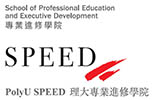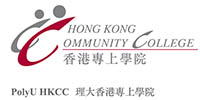雙語社評齊齊聽
[英語 (足本收聽)] Presented by Dr KWOK, Yuk-yin Frieda, Senior Lecturer of Hong Kong Community College, The Hong Kong Polytechnic University
[普通話 (足本收聽)] Presented by Dr JIAO, Nina, Lecturer of School of Professional Education and Executive Development, The Hong Kong Polytechnic University
The pandemic has gone out of control, and public hospitals have been inundated with patients. Basically, thousands of infected people have all been self-isolating at home since they received a positive rapid test result. Even if they have symptoms such as a fever or sore throat, they have no choice but to take care of themselves if the symptoms are not serious. Many citizens are worried about running out of medicine and are scrambling to buy them, causing an exhaustion of the supply of many over-the-counter Chinese and Western medicines. This has in turn exacerbated the panic. The situation is concerning.
Omicron is far more transmissible than influenza. One of the common situations following a major outbreak, should it happen, is that a large number of people will be infected or will need to be in quarantine and cannot go to work, rendering many social services and those relevant to people's livelihood unable to operate normally. Similar situations have occurred in European countries and the US earlier. In the US, things were so serious at one point that some local governments even suffered the problem of firefighter and police officer shortages. Now Hong Kong is facing a similar problem. Experts estimate that over one million people in Hong Kong have been infected with the virus. Many businesses have suspended operations since too many employees have contracted the virus. Meanwhile, large online shopping platforms have cancelled some customers' orders due to an extreme shortage of frontline staff. The MTR and KMB have also had to reduce the frequency of their services or, in the case of the latter, suspend some bus routes because many train and bus captains have been infected one after another. The SAR government has stated that it will not impose a full-scale lockdown, but the current situation in Hong Kong is probably not far from that of a ''half lockdown''.
There are hundreds of thousands of citizens infected with COVID-19. Overwhelmed, public hospitals can only focus on admitting and treating those in more serious conditions. In general, those with mild symptoms can only self-isolate at home. While the authorities have arranged for nearly 20 designated clinics to treat patients with mild symptoms, they can only treat several thousands of patients a day, which is just a drop in the ocean. Government support is insufficient, and the helplines for confirmed COVID patients are of limited help—callers often can't even get through. The so-called home isolation treatment for those with mild symptoms simply means that they are on their own. As patients need to treat their low fevers and sore throats themselves, over-the-counter medicines are needed more than anything else.
According to a representative of the Hong Kong General Chamber of Pharmacy, after a government expert advisor mentioned earlier that people with mild symptoms could take a certain brand of antipyretic painkiller, citizens flocked to buy it up. Pharmacies that originally had one to two months' supply of the medicine saw a complete sell-out of the drug together with antipyretics of other well-known brands within a few days. Since that particular painkiller is not produced in Hong Kong, the suppliers are also out of stock. It is expected that the product will only arrive in the city in one to two months. Some people have complained of price-gouging by some pharmacies. Some citizens have also said that they have a long-term need for painkillers. Now that the drugs have suddenly run out of stock, they only have a few tablets left at home and they are very worried.
As citizens are worried that they would have no medicine to take after being infected, the suggestion that the government could provide those in need with a medicine kit, including rapid test kits, antipyretics and over-the-counter Chinese medicines, is worth considering. Of course, its actual implementation will need to be well-thought-out. The authorities can consider requesting all private medical institutions or private clinics in the city to help distribute the medicine kits as a way of contributing to the anti-epidemic fight. Recipients or those who receive them on behalf of others must register with the authorities to avoid abuse of resources. Given the severity of the pandemic situation, the government cannot be stuck in a groove. If it thinks that it is difficult to adopt the suggestion, it should first ask how it can be done rather than make a knee-jerk rejection.
成藥斷貨人心惶惶 理順供應急民所急
疫情失控,公院滿瀉。萬計染疫者快速檢測陽性後,基本上全是居家隔離,縱有發燒喉痛等症狀,若不嚴重亦只能自理自救,不少市民擔心無藥在手,紛紛搶購,多款中西成藥斷市,反過來又加劇恐慌情緒,情况令人關注。
Omicron傳播力遠勝流感,一旦大爆發,其中一個常見情况,是大量人染疫或需隔離無法上班,導致社會民生很多服務無法正常運作,早前歐美國家就出現過類似情况,美國一些地方政府,嚴重時連消防警員都不夠,現在香港也面對類似問題。專家推算,全港有過百萬人染疫,不少商戶由於太多員工染疫,暫停營業,大型網購集團則因為前線人手極度短缺,取消部分顧客訂單。港鐵及九巴亦因為車長紛紛中招,需要縮減班次或停運部分巴士線。特區政府表示不會全面禁足,惟目前香港情况,恐怕已跟「半禁足」相去不遠。
染疫市民數以十萬計,公院不勝負荷,唯有重點收治病情較為嚴重的人,輕症者一般只能居家隔離。儘管當局已安排近20間指定診所,服務輕症病人,可惜一天只能治診數千病患,杯水車薪。政府支援不足,確診求助熱線幫助有限,甚至經常打不通,輕症者所謂居家隔離治療,實際就是自求多福,低燒喉痛「貴客自理」,最需要的就是成藥。
藥房商會代表稱,早前有政府專家顧問提到,輕症者可服用某一品牌的退燒止痛藥,市民蜂擁搶購,藥房原本有1至2個月的存貨,數日間沽清,連帶其他知名品牌退燒藥亦搶購一空。由於該款止痛藥並非香港生產,供應商亦缺貨,預計1至2個月後才有貨到港。有人投訴個別藥房趁機抬價漁利,亦有市民表示,平日向來要服止痛藥,現在突然斷貨,家中僅餘數粒,憂心不已。
市民憂慮染疫無藥食,由政府為有需要人士提供藥物包,包括快速檢測套裝、退燒藥和中成藥等,做法值得考慮,當然具體如何操作亦要想清楚。當局可考慮要求全港私營醫療機構或私家診所,協助分發藥物包,為抗疫出力,領取者或代領者須向當局註冊登記,避免濫用。疫情嚴峻,政府應對不能墨守成規,若認為執行有困難,首先應問如何可以辦得到,而非不假思索便說不可行。
明報社評2022.3.4







